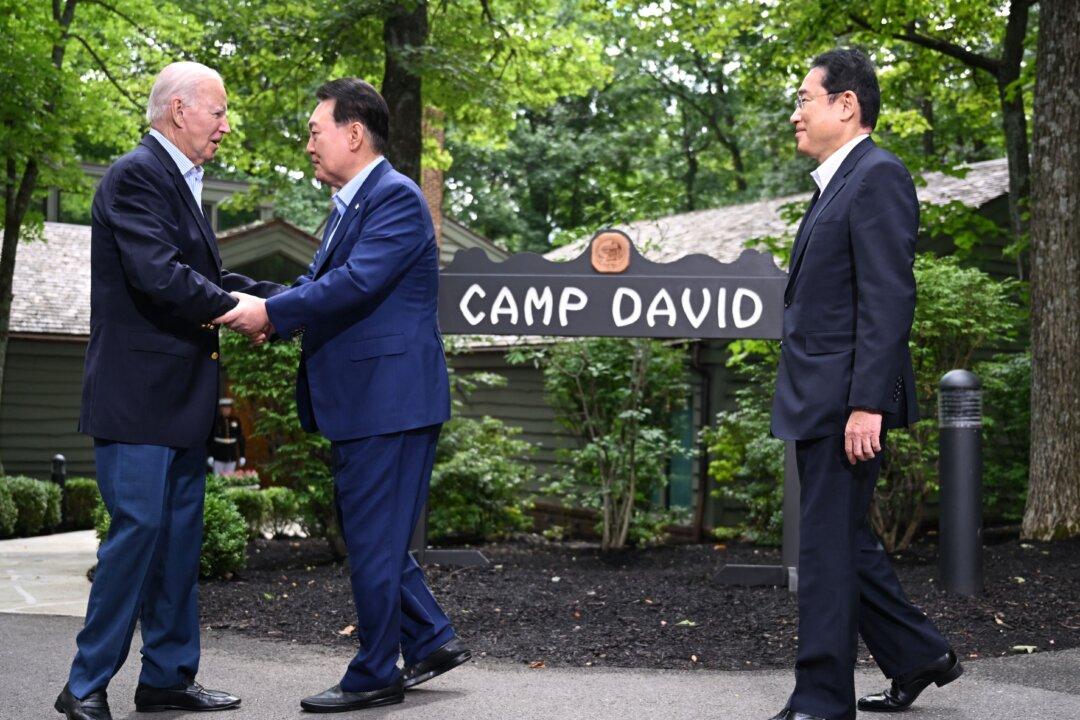CAMP DAVID, Md.—President Joe Biden is convening a “historic” gathering at Camp David with the leaders of Japan and South Korea, where the three powers will announce robust new security cooperation agreements.
President Biden welcomed Japanese Prime Minister Fumio Kishida and South Korean President Yoon Suk Yeol to the presidential retreat with a handshake this morning, where the three leaders are discussing common security concerns in light of escalating threats from China and North Korea.





